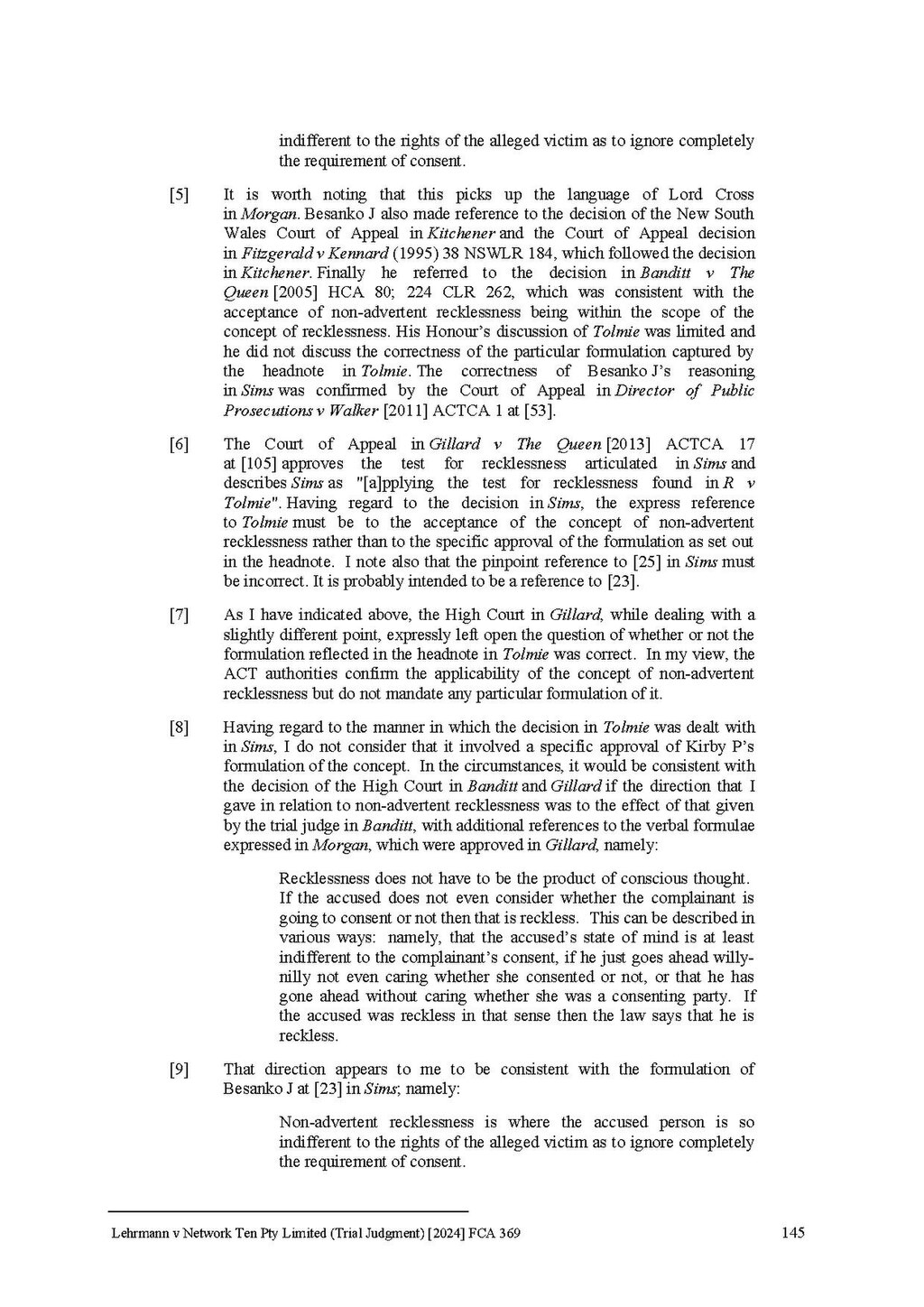indifferent to the rights of the alleged victim as to ignore completely the requirement of consent.
[5] It is worth noting that this picks up the language of Lord Cross in Morgan. Besanko J also made reference to the decision of the New South Wales Court of Appeal in Kitchener and the Court of Appeal decision in Fitzgerald v Kennard (1995) 38 NSWLR 184, which followed the decision in Kitchener. Finally he referred to the decision in Banditt v The Queen [2005] HCA 80; 224 CLR 262, which was consistent with the acceptance of non-advertent recklessness being within the scope of the concept of recklessness. His Honour's discussion of Tolmie was limited and he did not discuss the correctness of the particular formulation captured by the headnote in Tolmie. The correctness of Besanko J's reasoning in Sims was confirmed by the Court of Appeal in Director of Public Prosecutions v Walker [2011] ACTCA 1 at [53].
[6] The Court of Appeal in Gillard v The Queen [2013] ACTCA 17 at [105] approves the test for recklessness articulated in Sims and describes Sims as "[a]pplying the test for recklessness found in R v Tolmie". Having regard to the decision in Sims, the express reference to Tolmie must be to the acceptance of the concept of non-advertent recklessness rather than to the specific approval of the formulation as set out in the headnote. I note also that the pinpoint reference to [25] in Sims must be incorrect. It is probably intended to be a reference to [23].
[7] As I have indicated above, the High Court in Gillard, while dealing with a slightly different point, expressly left open the question of whether or not the formulation reflected in the headnote in Tolmie was correct. In my view, the ACT authorities confirm the applicability of the concept of non-advertent recklessness but do not mandate any particular formulation of it.
[8] Having regard to the manner in which the decision in Tolmie was dealt with in Sims, I do not consider that it involved a specific approval of Kirby P's formulation of the concept. In the circumstances, it would be consistent with the decision of the High Court in Banditt and Gillard if the direction that I gave in relation to non-advertent recklessness was to the effect of that given by the trial judge in Banditt, with additional references to the verbal formulae expressed in Morgan, which were approved in Gillard, namely:
Recklessness does not have to be the product of conscious thought. If the accused does not even consider whether the complainant is going to consent or not then that is reckless. This can be described in various ways: namely, that the accused's state of mind is at least indifferent to the complainant's consent, if he just goes ahead willy-nilly not even caring whether she consented or not, or that he has gone ahead without caring whether she was a consenting party. If the accused was reckless in that sense then the law says that he is reckless.
[9] That direction appears to me to be consistent with the formulation of Besanko J at [23] in Sims; namely:
Non-advertent recklessness is where the accused person is so indifferent to the rights of the alleged victim as to ignore completely the requirement of consent.
Page:Lehrmann v Network Ten Pty Limited (Trial Judgment).pdf/153
Jump to navigation
Jump to search
Lehrmann v Network Ten Pty Limited (Trial Judgment) [2024] FCA 369
145
